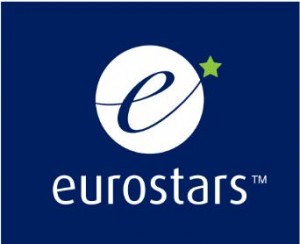
The Royal Society, under the Global Challenges Research Fund (GCRF), invites applications for its international collaboration awards for research professors. These enable outstanding UK research leaders to develop international collaborations with the best research professors from around the world, to work on some of the global challenges and problems facing developing countries.
The objectives of the challenge awards are to:
•support the best UK scientists in establishing sustainable collaborations with internationally leading scientists based overseas;
•promote collaboration and sharing of knowledge through reciprocal visits between the visiting research professors and their research groups;
•support outstanding research through collaboration with the aim of addressing global challenges facing developing countries and benefiting people in these countries;
•facilitate the development of multidisciplinary collaborations and approaches that could help address the complex research questions posed by global challenges;
•attract outstanding international scientists and their teams to the UK’s best universities and research institutions;
•strengthen UK science and open up new opportunities to exploit and translate research for economic benefit.
Global challenge themes include: sustainable health and well-being; sustainable resources; sustainable growth; sustainable local research and innovation capacity.
Click here for further information including eligibility and the application process.
If you are interested in submitting to this call you must contact your RKEO Funding Development Officer with adequate notice before the deadline.
For more funding opportunities that are most relevant to you, you can set up your own personalised alerts on Research Professional. If you need help setting these up, just ask your School’s/Faculty’s Funding Development Officer in RKEO or view the recent blog post here.
If thinking of applying, why not add notification of your interest on Research Professional’s record of the bid so that BU colleagues can see your intention to bid and contact you to collaborate.

![InnovateUK_LogoA_Interim_RGBx320govuk[1]](http://blogs.bournemouth.ac.uk/research/files/2014/12/InnovateUK_LogoA_Interim_RGBx320govuk11-300x90.jpg)


 In its capacity as UK National Contact Point for the European Research Council (ERC), the UK Research Office, in partnership with the hosting institutions, is holding two events for researchers who are interested in applying for the next ERC Starting Grants call. The events are scheduled as follows:
In its capacity as UK National Contact Point for the European Research Council (ERC), the UK Research Office, in partnership with the hosting institutions, is holding two events for researchers who are interested in applying for the next ERC Starting Grants call. The events are scheduled as follows: Eurostars supports international innovative projects led by research and development- performing small- and medium-sized enterprises (R&D-performing SMEs). With its bottom-up approach, Eurostars supports the development of rapidly marketable innovative products, processes and services that help improve the daily lives of people around the world. Eurostars has been carefully developed to meet the specific needs of SMEs. It is an ideal first step in international cooperation, enabling small businesses to combine and share expertise and benefit from working beyond national borders.
Eurostars supports international innovative projects led by research and development- performing small- and medium-sized enterprises (R&D-performing SMEs). With its bottom-up approach, Eurostars supports the development of rapidly marketable innovative products, processes and services that help improve the daily lives of people around the world. Eurostars has been carefully developed to meet the specific needs of SMEs. It is an ideal first step in international cooperation, enabling small businesses to combine and share expertise and benefit from working beyond national borders.

 We have previously posted about the Research and Knowledge Exchange (RKE)
We have previously posted about the Research and Knowledge Exchange (RKE) The Government Spending Review on 25th November 2015 announced “a new £1.5 billion Global Challenges Research Fund, to ensure UK science takes the lead in addressing the problems faced by developing countries, whilst developing our ability to deliver cutting-edge research”. The Global Challenges Research Fund is a BIS initiative which operates across a number of delivery partners, including the Research Councils, National Academies and HEFCE.
The Government Spending Review on 25th November 2015 announced “a new £1.5 billion Global Challenges Research Fund, to ensure UK science takes the lead in addressing the problems faced by developing countries, whilst developing our ability to deliver cutting-edge research”. The Global Challenges Research Fund is a BIS initiative which operates across a number of delivery partners, including the Research Councils, National Academies and HEFCE. The
The  Workshop
Workshop











 April’s Café Scientifique – Should we help machines understand and respond to our emotions?
April’s Café Scientifique – Should we help machines understand and respond to our emotions? Postgraduate Research Experience Survey (PRES) 2024 – 2 WEEKS LEFT
Postgraduate Research Experience Survey (PRES) 2024 – 2 WEEKS LEFT Working with The Conversation: online training session – Wednesday 8th May
Working with The Conversation: online training session – Wednesday 8th May Apply for up to £1,000 to deliver an event and take part in a national festival of public engagement with research
Apply for up to £1,000 to deliver an event and take part in a national festival of public engagement with research MSCA Postdoctoral Fellowships 2024
MSCA Postdoctoral Fellowships 2024 Horizon Europe News – December 2023
Horizon Europe News – December 2023